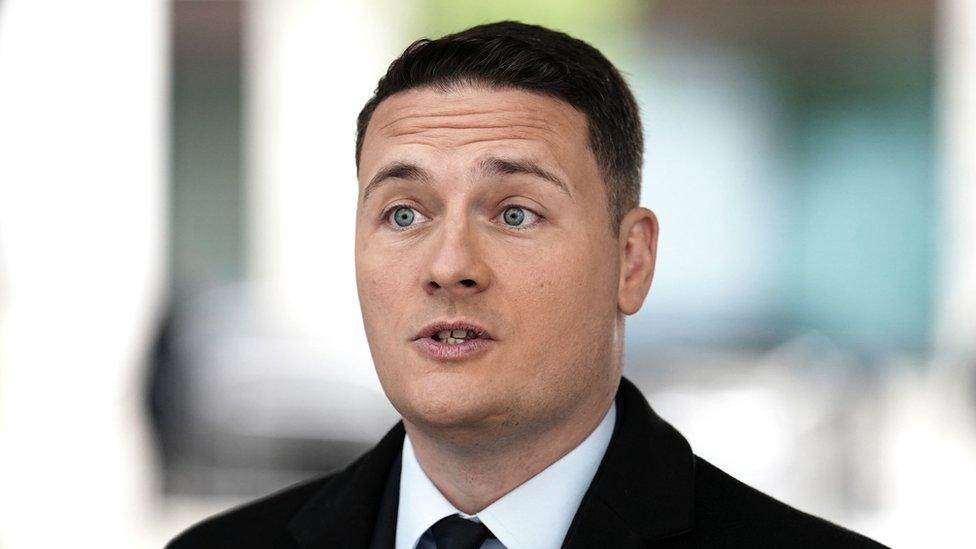Bristol gynaecological cancer waiting times 'worry' patient
- Published
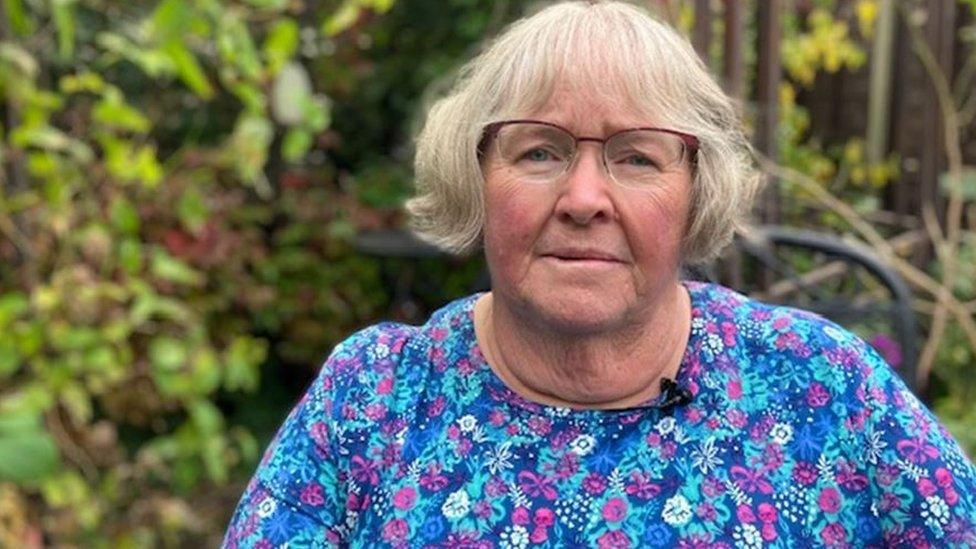
Caroline White says she is feeling "worried and stressed" as she waits for an appointment
A hospital in Bristol has one of the worst waiting times in the country for women with suspected gynaecological cancer.NHS data shows that in June, 2% of such patients were seen at Southmead Hospital within two weeks - which is the government target.
Caroline White, 66, said she was was shocked to be told she would have to wait at least six weeks after her GP said she may have cervical cancer.
The hospital has apologised for the long waiting times and said it is making more appointments available.
Ms White, from Filton, went to see her doctor on 27 September due to bleeding after the menopause.
Her GP concluded she probably had cancer after carrying out an internal examination and instantly referred her for a biopsy at Southmead Hospital.
'In the dark'
After her GP appointment, the two-week referral was sent but Ms White was later told that she would face a six-week wait for the appointment, which left her feeling "desperate".
"I am very worried and stressed by it," she said.
"Even now I haven't got a date - I am completely in the dark. I'd say I only have 10% confidence it will actually happen within the six weeks.
"If they go on strike again I think the wait might get even longer," added Ms White.
Southmead Hospital has one of the worst cancer wait times in the country for women with suspected gynaecological cancer, only meeting the target waiting time in 48% of cases.
NHS data shows that over the past year to July, less than half of women were seen after referral within the two-week target, with other hospitals in the west performing better.
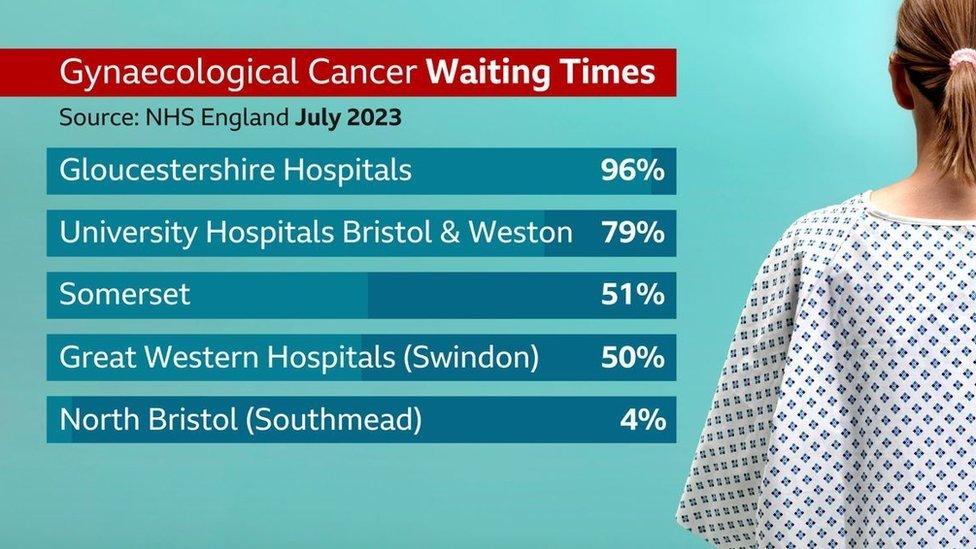
Figures show the percentage of gynaecology cancer patients seen within two weeks of a GP referral across the West Country in July
Southmead Hospital's figures saw a sharp decline in March, June and in July but it was not able to say whether the increased waiting times had been due to recent strikes.
In July, Southmead was significantly worse than other hospitals in the region seeing only 4% of women in time.
At Gloucestershire Hospitals NHS Trust, 96% of patients were seen in time, at University Hospitals Bristol and Weston it was 79%, in Somerset it was 51%, and at the Great Western Hospital in Swindon it was 50%.
Steve Curry, chief operations officer at North Bristol NHS Trust, said: "We have seen a significant increase in two-week wait referrals for suspected gynaecological cancer and while we have made some progress, we acknowledge we have more to do and want to apologise to anyone waiting longer than we would like.
"We're working hard to improve our performance to ensure that everyone with suspected cancer who needs diagnostic tests is not only seen rapidly but gets their results as quickly as possible.
"We have recently recruited additional roles and added further clinical capacity in order to improve our performance against the faster diagnosis standard."
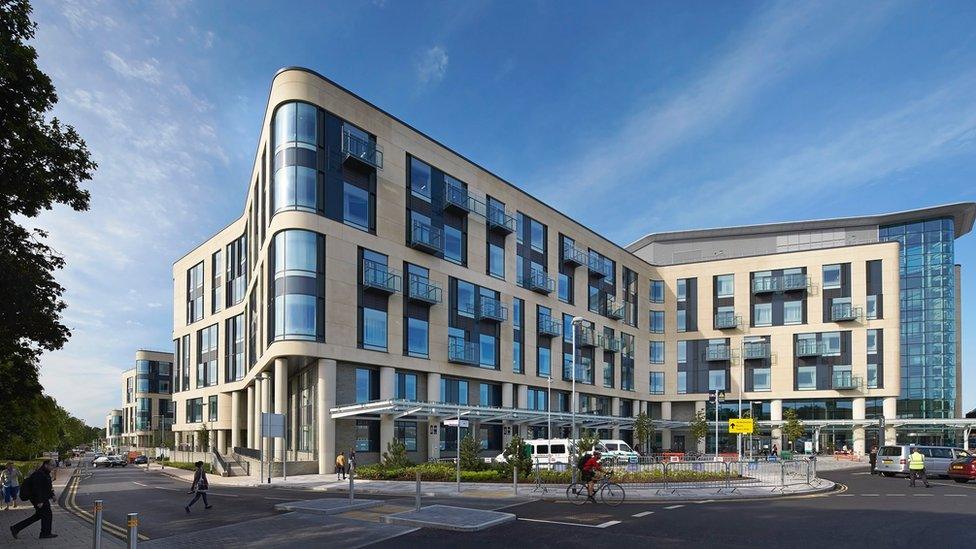
Southmead Hospital said it had seen a "significant" rise in referrals
North Bristol NHS Trust added that the two-week wait referrals for suspected gynaecology cancer had increased by 24% from January to June 2022 compared to the same period in 2023.
The hospital said it had recently added five additional clinics, creating a further 51 appointments per week for its gynaecology service.
The only trust in the country with a worse figure in July at 2% was University Hospitals Dorset, which takes patients from south Wiltshire.
Mark Mould, chief operating officer for University Hospitals Dorset, said more appointments were being made available.
"We know that any length of wait can cause anxiety for our patients and we are working extremely hard to offer timely appointments.
"We have seen a significant increase in urgent referrals for suspected cancer - up 26% in a year - and like many trusts the impact of the pandemic has left us managing long waits.
"An additional 1,700 appointments are being made at our outpatients assessment clinic in Poole to provide access to the longest waiting patients."
'Steady climb'
Stephen Dobbs, president of the British Gynaecological Cancer Society, said the figures were "quite worrying".
He added: "They are not unusual throughout the country. In the last 18 months there's been a steady climb in waiting times for people to be referred on for two-week diagnostic waits.
"At present, most hospitals are missing targets for investigations and diagnosing patients.
"There are a number of reasons which include a rapid increase in referrals, a decrease in pressure on staff in primary and secondary and a difficulty in getting hold of diagnostics to confirm or exclude cancers."

Follow BBC West on Facebook, external, X, external and Instagram, external. Send your story ideas to: bristol@bbc.co.uk
- Published12 October 2023
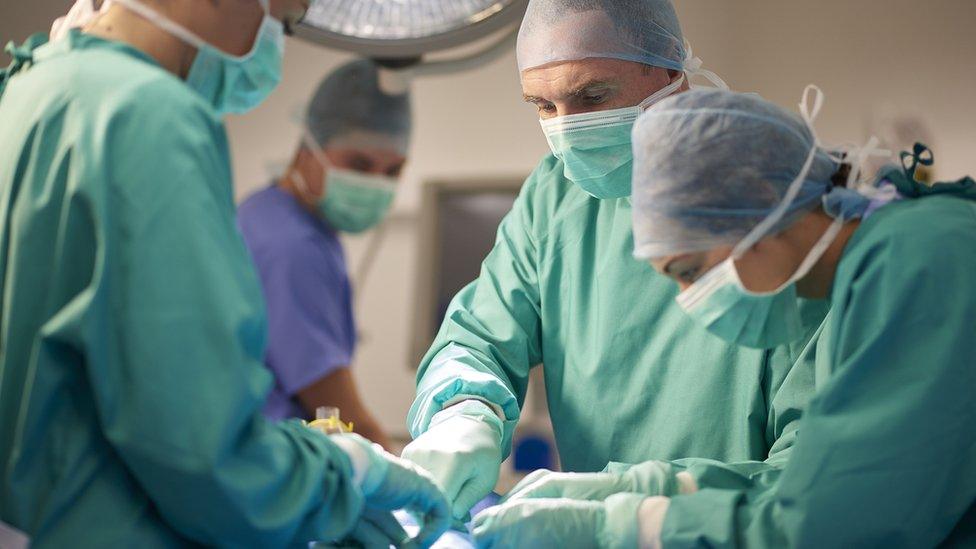
- Published11 October 2023
